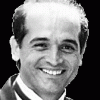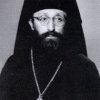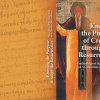Dr Marko Jaric completed his post-doctoral studies at the University of California at Berkeley from 1978 to 1980 as a Miller fellow and at the Freie Universität in Berlin from 1980 to 1982 as a Humboldt fellow. As an already recognized scientist he conducted research at the Institut des Hautes Etudes at Bures-sur-Yvette, France and at the Einstein Center for Theoretical Physics at the Weizmann Institute in Israel.
Dr. Marko Jaric received his first professorship in 1983 at the Montana State University, where he lectured as a visiting professor. In 1985 he received the same position at Harvard University, and only a year later, in 1986, he was offered a full professorship at the renowned A&M University in Texas where he stayed until his premature death on the 25th of October 1997. He was especially proud of the professorship he received from the Nikola Tesla University in Knin in 1993.
Professor Marko Jaric was actively involved in scientific research in theoretical solid-state physics, mathematical physics, and biophysics. His successful research career may be best illustrated with more than 100 articles published in leading scientific journals. His papers are cited over 1300 times in international scientific journals. He published four books and supervised several scientific projects funded by the US National Science Foundation. In addition professor Jari was a reviewer and often the main referee for two distinguished journals: Physical Review and Physical Review Letters. He organized four international conferences and delivered opening lectures as an invited speaker on 30 other international conferences.
The principal results of professor Jaric’s work which enabled him to reach the world’s highest level and brought him the reputation of a world class physicist include: the application of spatial group theory to structural phase transitions, investigation of the coexistence of magnetism and superconductivity, the theory of equilibrium polymerization and the physics of quasicrystals. His pioneering works in the field of quasicrystal physics along with his four books: Introduction to Quasicrystals, Introduction to the Mathematics of Quasicrystals, Extended Icosahedral Structures, and Quasicrystals, have come to represent the basic literature in this field and have brought him a great scientific recognition.
His exceptional talent for science and remarkable intelligence made him a very popular and highly respected person wherever he was living and working.
With the same enthusiasm and courage that characterized his work in physics, Marko Jaric strived for the protection of truth and defending the rights of the Serbian people.
The Foundation "Prof. Dr. Marko V. Jaric"





